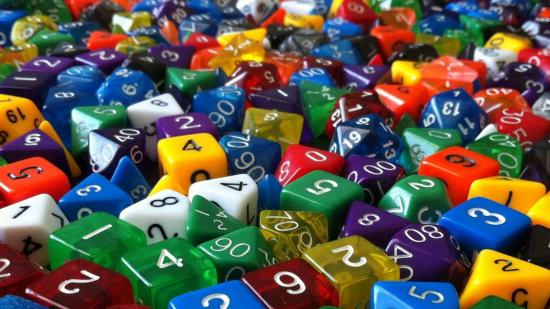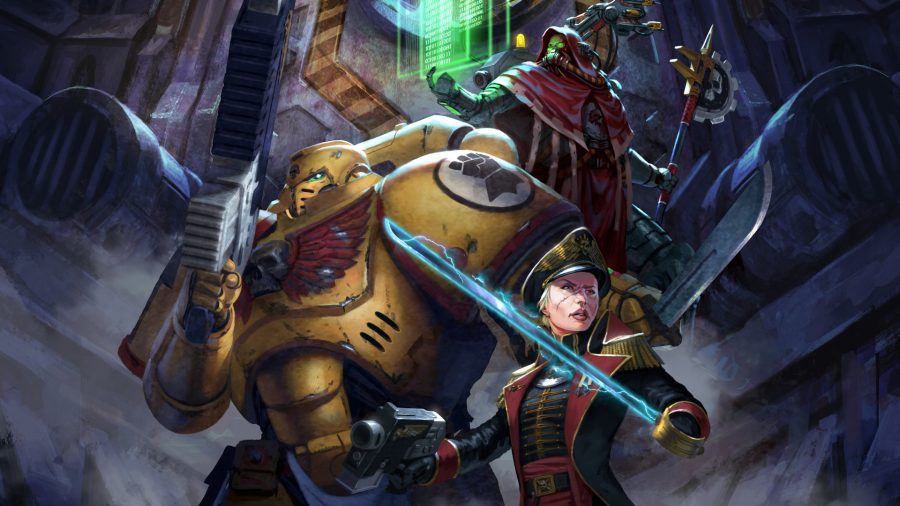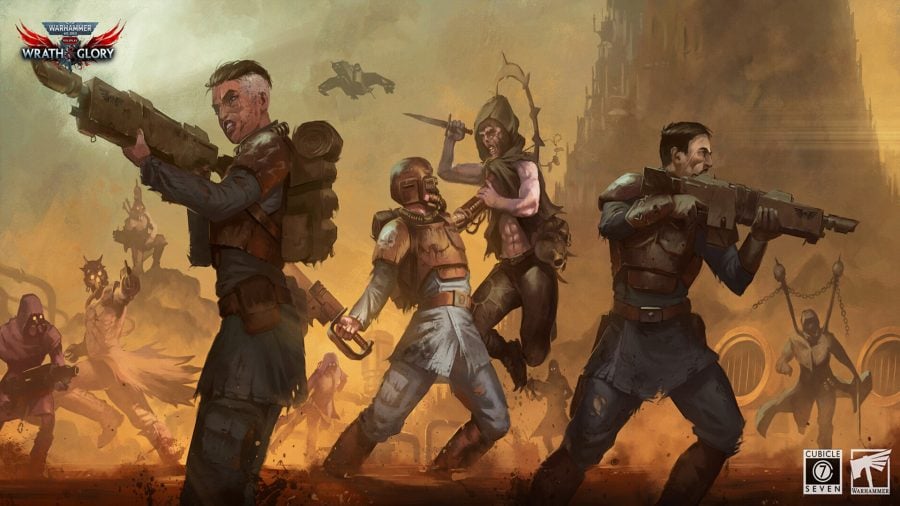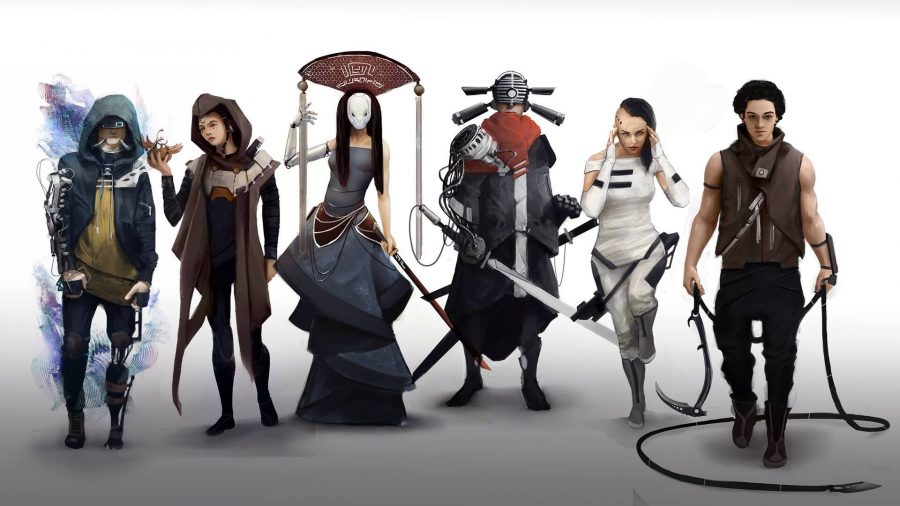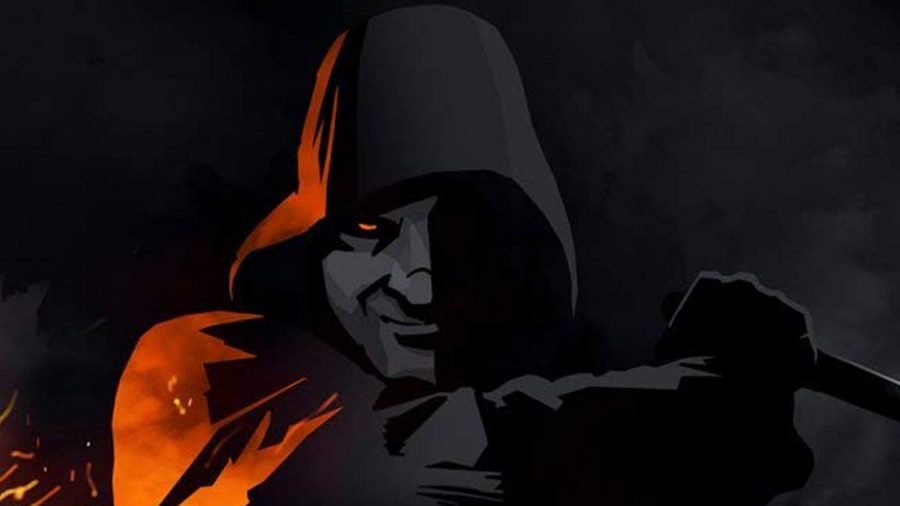We love Dungeons and Dragons, but let’s bite the bullet here: there are much better tabletop RPG dice systems than DnD’s old faithful ‘D20 plus a number’ method. In 2023, the world of tabletop roleplaying is a lot bigger than it was even nine years ago in 2014, when DnD 5e launched – and with growth comes progress – so we created this guide to praise a few games that simply do better with their dice.
Don’t misunderstand us, DnD is a stone cold classic. The robust d20 system used for DnD dice can accommodate a vast diversity of beloved DnD settings, from the high adventure of Dragonlance to the gothic horror of Ravenloft in Curse of Strahd. The blissful high of a critical hit and the crushing disappointment of a natural one are as baked into the system as DnD dragons or Mind Flayers. There’s more to DnD than just a dice game, in any case.
However, like any old reliable workhorse, single-d20 systems have begun to show their limitations. TTRPGs are, ultimately, about storytelling, and, in any good story, a character’s success or failure is rarely cut and dried. While triumphant successes and tragic failures are thrilling, DnD simply doesn’t have enough room for partial success or partial failure. Ambiguous outcomes aren’t everyone’s cup of tea, but there are huge benefits to using a dice system which can accommodate more nuanced story beats.
Some of the best RPG dice systems are:
- Warhammer 40k: Wrath and Glory – the best dice system for skills
- Powered By The Apocalypse – the most versatile RPG dice system
- Blades in the Dark – the best dice system for putting story first
Warhammer 40k: Wrath and Glory
The best dice system for skills
As well as offering players a modern take on roleplaying in the grim darkness of the far future, Cubicle 7’s Warhammer 40k: Wrath and Glory boasts an intricate dice roll system to match its faithful, detailed recreation of the grim, dark Warhammer 40k setting and various Warhammer 40k factions.
The core mechanic is simple: players will roll a number of d6 based on their skills and attributes to determine their success, which are measured in ‘icons’. A four or five will amount to a single icon, while a six gets you an ‘exalted icon’ which is worth two. Get enough icons and your character succeeds.
There’s more to it than that, though. In Wrath and Glory, one of the d6 is always a “wrath” dice; a significant mechanic which adds an extra level of risk. Roll a six and you’ll get a critical success, which can be spent on improved outcomes or to add ‘glory’ points to the party.
These come in handy for extra buffs down the line. However, roll a one, and, success or failure, you’ll have a complication to deal with. This can be as mundane as a weapon jam, or as serious as rolling on the notoriously dangerous Perils of the Warp table.
Complications and criticals add an extra narrative dimension to the drama in Wrath and Glory, as well as its sister game Age of Sigmar: Soulbound, which uses a similar dice system (with a few tweaks to honor the Age of Sigmar high fantasy setting, and the weird and wonderful Age of Sigmar armies cavorting around in it.
Powered By The Apocalypse
The most versatile, balanced dice system
Originally used in the critically acclaimed Apocalypse World, this 2d6 based system has seen dozens of incarnations from the superpowered drama of Masks, to the cyberpunk adventures of The Veil. Its success comes down to a simple, yet elegant dice roll system.
To do something dramatic in a Powered By The Apocalypse game, simply roll 2d6 and add a relevant stat, usually ranging from -1 to +2. On a ten or above, it’s a success, no questions asked. On a six or below, it’s a failure.
Get a seven to nine, however, and you have a success, but with a consequence or a drawback of some kind. This varies from system to system, but the ethos allows for nuanced and organic narrative outcomes.
Crucially, a seven is by far the most common outcome when rolling 2d6, meaning players are more likely to arrive at a mixed success. By taking advantage of probability, Powered By The Apocalypse facilitates more interesting narrative outcomes and makes full successes more exciting by making them rarer.
Blades in the Dark
The best dice system for putting story first
In Evil Hat’s Blades in the Dark, players take on the role of a group of daring criminals in a haunted fantasy city. Dramatic heists and narrow escapes are par for the course in Blades. Like Apocalypse World, Blades uses a straightforward but powerful dice system.
Skill checks are simple: roll a number of d6 equal to your skill level and take the highest roll. On a six, you succeed. On a four or a five, you succeed at a cost, and on a three or lower, you fail.
Get a pair of sixes and you have a critical success on your hands. You can spend resources or use skills to boost these rolls or to add extra dice, but the fundamentals are always the same.
This system works well because it allows for varied and sometimes mixed results while properly rewarding characters who choose to specialise in certain skills.
What’s more, characters can always attempt to use a skill in which they have no points, forcing them to roll 2d6 and to take the lowest result. This means that risky gambles are always a possibility for particularly desperate characters. After all, what’s a TTRPG without a little risk?
